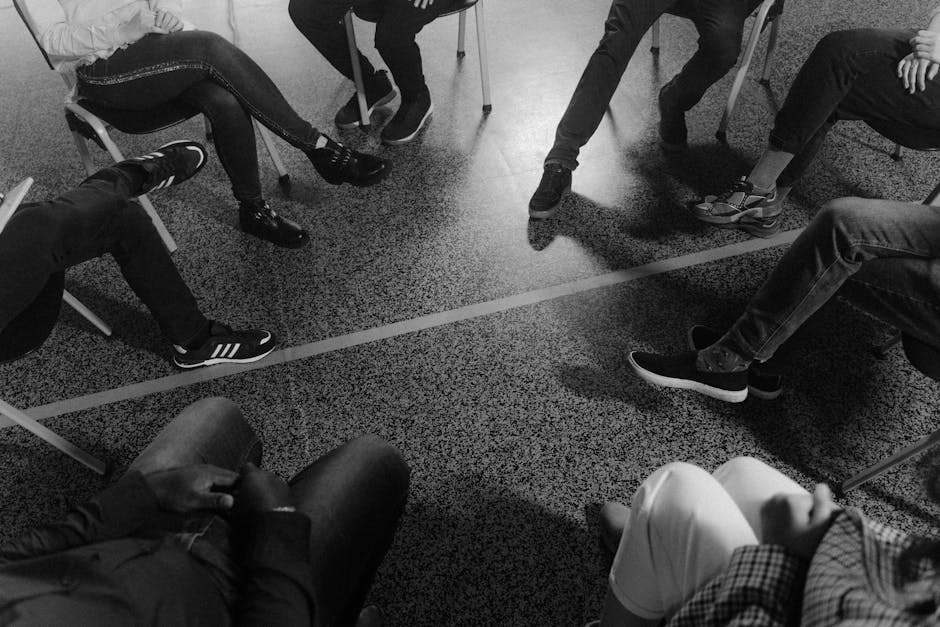The Role of Peer Mentoring in Mental Health Recovery
Understanding the journey to mental health recovery can be complex and challenging. One powerful tool often overlooked is the impact of peer mentoring. In this blog post, we’ll explore how peer mentoring can support individuals on their path to mental wellness.
Table of Contents
1. Introduction to Peer Mentoring ?
2. Benefits of Peer Mentoring in Mental Health Recovery ?
3. How to Find a Peer Mentor ?????
4. Real-Life Success Stories ?
5. Conclusion: Embracing Peer Support ?
6. FAQ Section ?
Introduction to Peer Mentoring ?
Peer mentoring involves individuals who have experienced similar challenges supporting each other. It’s a structured relationship where both parties learn and grow together. For those on a mental health recovery journey, peer mentors can offer empathy, understanding, and practical advice that professionals might not provide.
Benefits of Peer Mentoring in Mental Health Recovery ?
Peer mentoring offers numerous advantages:
1. Shared Experience: Knowing someone who has walked a similar path can be incredibly validating. It breaks the loneliness barrier and creates a safe space for sharing and healing.
2. Personalized Support: Unlike traditional therapy, peer mentoring provides a more personalized approach, where conversations are fluid and adaptable to immediate needs.
3. Empowerment: Engaging with a peer mentor can instill hope and motivation. Seeing someone who has overcome similar hurdles can inspire and empower individuals to continue their recovery journey.
How to Find a Peer Mentor ?????
Finding the right peer mentor can greatly influence your recovery journey. Here are some tips to help you find a match:
Research Local Organizations: Many community centers and mental health organizations offer peer mentoring programs. Start by reaching out to them to inquire about available resources.
Online Platforms: Websites and apps dedicated to mental health often have forums or sections dedicated to peer support. These platforms can connect you with mentors worldwide.
Personal Networks: Sometimes, a friend or acquaintance who understands your journey can become a valuable peer mentor. Don’t hesitate to reach out and ask.
Real-Life Success Stories ?
Here are a couple of inspiring stories where peer mentoring made a significant difference:
Sarah’s Story: After being diagnosed with depression, Sarah connected with a peer mentor through a local support group. Her mentor’s understanding and advice helped Sarah develop coping strategies, leading to improved well-being.
Tom’s Journey: Struggling with anxiety, Tom found support on an online platform. His mentor shared personal experiences and techniques that helped Tom manage his anxiety better, giving him tools for long-term recovery.
Conclusion: Embracing Peer Support ?
Peer mentoring is a powerful and often underutilized tool in mental health recovery. By fostering genuine connections, sharing experiences, and providing personal insights, peer mentors can significantly enhance one’s journey to mental wellness. Remember, you are not alone, and there are people eager to help you on your path to recovery.
FAQ Section ?
Q1: What is the difference between peer mentoring and professional therapy?
A: Peer mentoring is about shared experiences and mutual support, while professional therapy involves structured sessions with a trained therapist focusing on specific therapeutic techniques.
Q2: Can peer mentoring replace traditional therapy?
A: While peer mentoring offers valuable support, it is not a replacement for professional therapy. It’s most effective when used alongside traditional treatment methods.
Q3: How can I become a peer mentor?
A: To become a peer mentor, consider joining a training program offered by mental health organizations. These programs prepare you to support others effectively and responsibly.
Q4: Is online peer mentoring effective?
A: Yes, online peer mentoring can be just as effective as in-person mentoring. It offers flexibility and access to a broader community of support.
For more information please click here
James Donaldson is a Washington State University graduate (’79). After an outstanding basketball career with WSU, he went on to play professional basketball in the NBA with the Seattle Supersonics, San Diego/L.A. Clippers, Dallas Mavericks, New York Knicks, and Utah Jazz. He also played for several teams in the European Leagues in Spain, Italy, and Greece, and he toured with The Harlem Globetrotters to wrap up his career. James was an NBA All-Star in 1988 while playing center for the Dallas Mavericks. In 2006, James was inducted into the Pac-10 Sports Hall of Fame and also the Washington State University Athletic Hall of Fame. In 2010, James was elected as a board member for the NBA Retired Players Association.
James frequently conducts speaking engagements (motivational, inspirational, educational) for organizations, schools, and youth groups.
In 2010, James was the recipient of the NBA Legends of Basketball ABC Award, awarded for outstanding contributions in Athletics–Business–Community.
He believes in being a role model for success and professionalism to the scores of young people to whom he devotes so much of his time. He currently serves on several boards and committees and is a member of many organizations.
James believes in developing relationships that create a “Win-Win” environment for everyone involved, and in being the best he can be!
For more information about James Donaldson or to request he speak at your event, contact him at:
www.StandingAboveTheCrowd.com
[email protected]
1-800-745-3161 (voicemail & fax)
James Donaldson is the author of “Standing Above The Crowd” and “Celebrating Your Gift of Life” and founder of the Your Gift of Life Foundation which focuses on mental health awareness and suicide prevention, especially pertaining to our school aged children and men.
If you’re interested in having James come and speak to your group of young adults, business entrepreneurs, aspiring political and community leaders, and athletic teams, please contact him at [email protected] and or leave a personal message for him at 1-800-745-3161. Keep up with him and read about how he is reaching out and making a difference in the lives of so many around the world at www.yourgiftoflife.org




